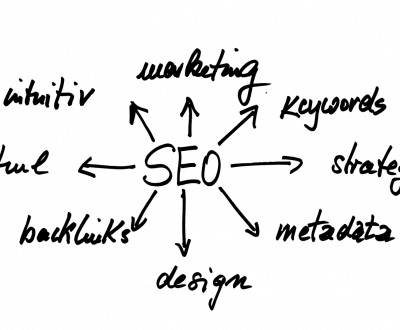Table of Contents
- Introduction to Canonical URLs
- The Role of Canonical URLs in SEO
- Implementation and Benefits of Canonical URLs
- Best Practices for Canonical URL Usage
- Common Misconceptions and Troubleshooting
- FAQs on Canonical URLs
- Conclusion: Optimising Content Harmony
Introduction to Canonical URLs
A Canonical URL refers to the preferred version of a webpage among similar or duplicate content. Understanding its usage and implementation is pivotal for streamlined SEO strategies.
The Role of Canonical URLs in SEO
- Canonical URLs help search engines identify the primary version of a webpage when multiple versions exist.
- They consolidate link equity and avoid content duplication issues for better search engine rankings.
Implementation and Benefits of Canonical URLs
Implementing Canonical URLs involves specifying the preferred URL using HTML tags, ensuring search engines index the intended version. This practice consolidates ranking signals for improved SEO.
Best Practices for Canonical URL Usage
- Consistency in canonicalization across various versions of a webpage ensures accurate indexing.
- Using canonical URLs for pagination, parameter handling, and cross-domain content harmonizes SEO efforts.
Common Misconceptions and Troubleshooting
Misconceptions such as canonicalizing non-similar content or ignoring redirect chains can impact SEO efforts negatively. Troubleshooting involves rectifying these misconceptions.
FAQs on Canonical URLs
They refer to the preferred version of a webpage among similar or duplicate content.
They consolidate link equity and resolve content duplication issues for better search engine rankings.
Implementing them involves specifying the preferred URL using HTML tags, consolidating ranking signals for improved SEO.
Consistency in canonicalization and utilising them for pagination, parameter handling, and cross-domain content ensure SEO harmony.
Misconceptions include canonicalizing non-similar content or ignoring redirect chains, which can be rectified by proper implementation.
Conclusion: Optimising Content Harmony
Canonical URLs serve as a crucial tool in harmonizing SEO efforts. Understanding their usage and implementing best practices ensures streamlined content indexing and improved search engine rankings.
Explore our SEO & Marketing services:
- Smarter Wiser Digital Marketing
- Local SEO
- Link Building
- Mobile Marketing
- SEO Keyword Research
- Social Media Marketing
- Search Engine Optimisation
- Request a Free SEO Analysis
Reach out to us at Smarter Wiser Digital Marketing for a comprehensive analysis and tailored solutions to enhance your digital footprint. Our Marketing Agency works with you on a personal level one to one making sure we achieve all our targets and goals
About us and this blog
We are a digital marketing company with a focus on helping our customers achieve great results across several key areas.
Request a free quote
We offer professional SEO services that help websites increase their organic search score drastically in order to compete for the highest rankings even when it comes to highly competitive keywords.
We offer a FREE Website Audit. No Charge, No Catch, simply add your website, the email address to send report. We will send you a website audit report highlighting any website issues, broken links, alt tags missing, duplicate titles etc along with a Google Analysis of your content.
Recent Posts
All Website Tags
- Advanced SEO Analytics
- AI and Machine Learning in SEO
- Algorithm Updates and SEO
- Algorithm Updates and SEO News
- Alt Text (Alternative Text)
- Analytics and Insights
- Anchor Text
- Audit
- Backlink Monitoring and Management
- Backlinks
- Black Hat SEO
- Brand Awareness
- Canonical URLs
- Content Creation Chronicles
- Content Marketing
- Content Marketing Corner
- Content Marketing for SEO
- copywriting
- CTR (Click-Through Rate)
- Digital Authority
- Digital Diagnostic
- Digital Diagnostic for SEO
- Digital Health Assessment
- Digital Marketing Trends
- Domain Authority DA
- Duplication
- E-Commerce SEO
- Email Marketing Mastery
- External Linking
- Google Core Update
- Google My Business GMB
- Heading Tags (H1, H2, H3, etc)
- Healthcare SEO Strategies
- Indexing
- Internal Linking
- Internal Linking Strategies
- International SEO Strategies
- Keyword Analysis and Optimisation
- Keyword Research and Analysis
- Keywords
- Link Building
- Link Building for SEO
- Link Building Strategies
- Link Building Techniques
- Link Building Tools and Tips
- Local SEO Spotlight
- Local SEO Strategies
- Market Research
- Marketing
- Marketing Mix
- Meta Tags (Title, Description)
- Mobile SEO
- Off-Page Optimisation
- Off-Page SEO
- On-page SEO
- Online Audit Insights
- Online Audit Insights for SEO
- Optimise Your SEO
- Optimise Your Website
- Organic Traffic
- Page Authority
- Page Load Speed
- Paid Search (PPC)
- Ranking
- Reputation Management and Online Branding
- Search Engine Optimising Service
- Search Ranking Analysis
- SEO
- SEO Analytics and Reporting
- SEO Diagnostic Lab
- SEO Evaluation Toolkit
- SEO for Beauty
- SEO for Blogs and Content Platforms
- SEO for Hair Salons
- SEO for Spas
- SEO for Startups
- SEO for WordPress Websites
- SEO Health Assessment
- SEO Health Check
- SEO Performance Checkup
- SEO Success Secrets
- SERP
- Site Performance Analysis
- Social Media Integration for SEO
- Social Media Strategies Unveiled
- Target Audience
- Technical SEO
- Technical SEO Demystified
- Video SEO for YouTube
- Web Presence Checkup
- Website Health Check
- White Hat SEO









